Humanity & Inclusion is an independent and impartial aid organization working in situations of poverty and exclusion, conflict and disaster. We work alongside people with disabilities and vulnerable populations, taking action and bearing witness in order to respond to their essential needs, improve their living conditions and promote respect for their dignity and fundamental rights.
Outraged by the injustice faced by people with disabilities and vulnerable populations, we aspire to a world of solidarity and inclusion, enriched by our differences, where everyone can live in dignity.
Humanity
Our work is based on the value of humanity. We include everyone without exception and champion each individual’s right to dignity. Respect, kindness, and humility guide our work.
Inclusion
We advocate inclusion and participation for everyone, upholding diversity, fairness, and individual choices. We value difference.
Commitment
We are resolute and bold in our commitment to developing tailored, pragmatic, and innovative solutions. We take action and rally those around us to fight injustice.
Integrity
We work in an independent, professional, selfless, and transparent manner.
"Our determination to help the most vulnerable groups, including in extreme situations, has proven its worth. We have earned the legitimacy we need to combat certain now illegal weapons – landmines and cluster munitions. This same determination drives our teams today and motivates their tireless efforts in nearly 60 countries."
Jean-Baptiste Richardier, co-founder of Humanity & Inclusion
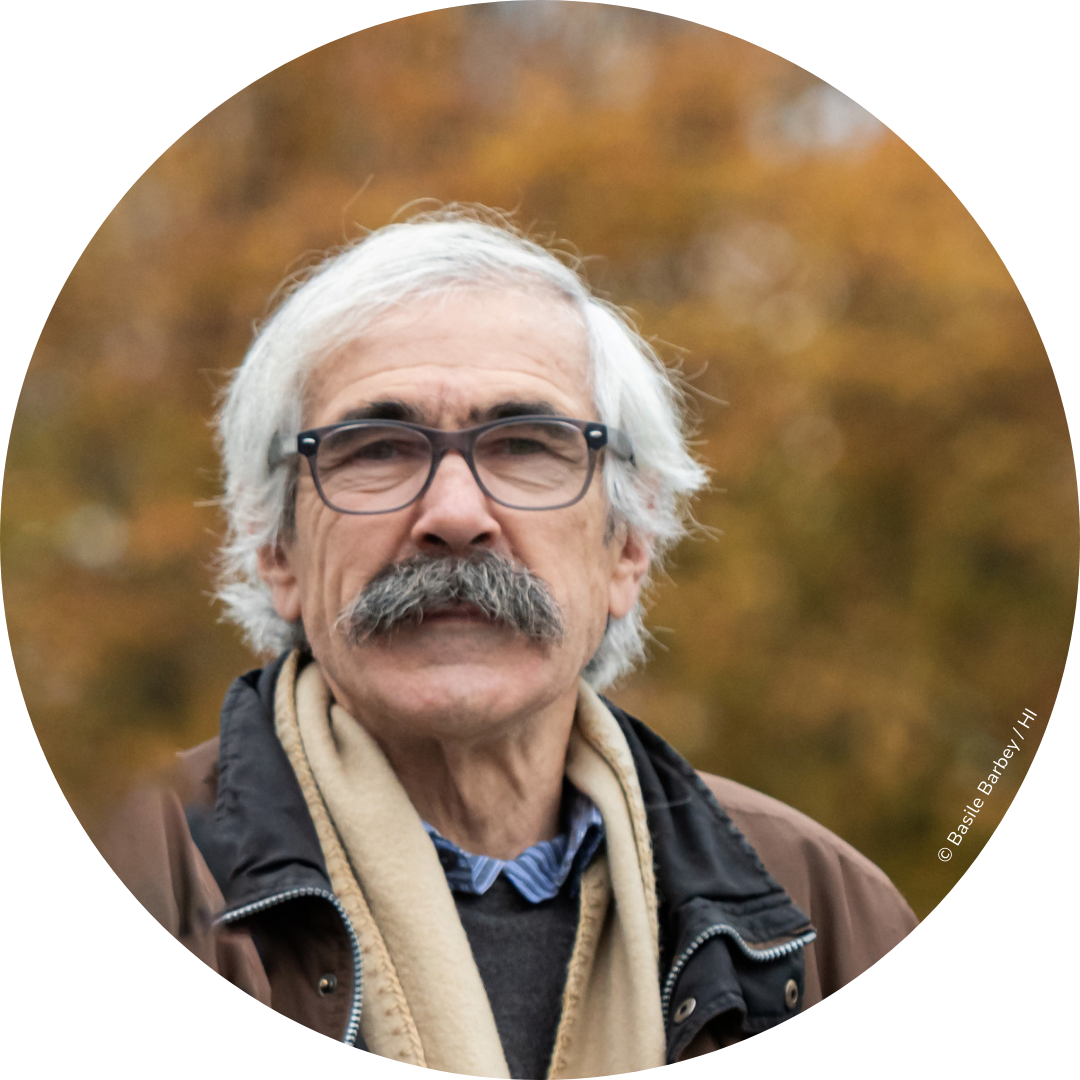



HI's mission and activities are underpinned by a multi-annual strategy, principles of intervention, and a clearly-defined scope of activity.
We work in 60 countries around the world running hundreds of projects in emergency, chronic crisis, reconstruction and development settings. The beneficiaries of our projects are people with disabilities and a broad range of other vulnerable groups.
HI's ten-year international strategy has 3 priority actions:
Thanks to individual supporters just like you, Humanity & Inclusion supports people in countries around the world affected by conflict, disaster and poverty.
As well as our amazing donors, we also rely on the dedication of our 5,362 staff around the world, including 4,438 local staff supporting our programmes on the ground.
Since HI was founded in 1982, our work has benefitted tens of millions of people worldwide. In 2024, we ran 480 projects in 58 countries.
Since its creation in 1982, HI has implemented development programs in nearly 60 countries and is involved in many emergency situations. In January 2018, the global network Handicap International became Humanity & Inclusion. It includes national associations called "Handicap International" in continental European countries (in France (1982), Belgium (1986), Switzerland (1996), Luxembourg (1997) and Germany (1998)) and "Humanity & Inclusion" in the United Kingdom (1999), Canada (2003) and the USA (2006).
The Canadian association was founded in 2003 and became a registered charity in 2006.




Our founders decided to create an organisation to help them "stand up tall", with appropriate artificial limbs. Over time, HI has evolved into an organization with a range of programs to provide assistance and social support to the most vulnerable groups in situations of conflict and natural disaster, poverty and exclusion.
1982 – 1986
The creation of Handicap International (Humanity & Inclusion) and the early years
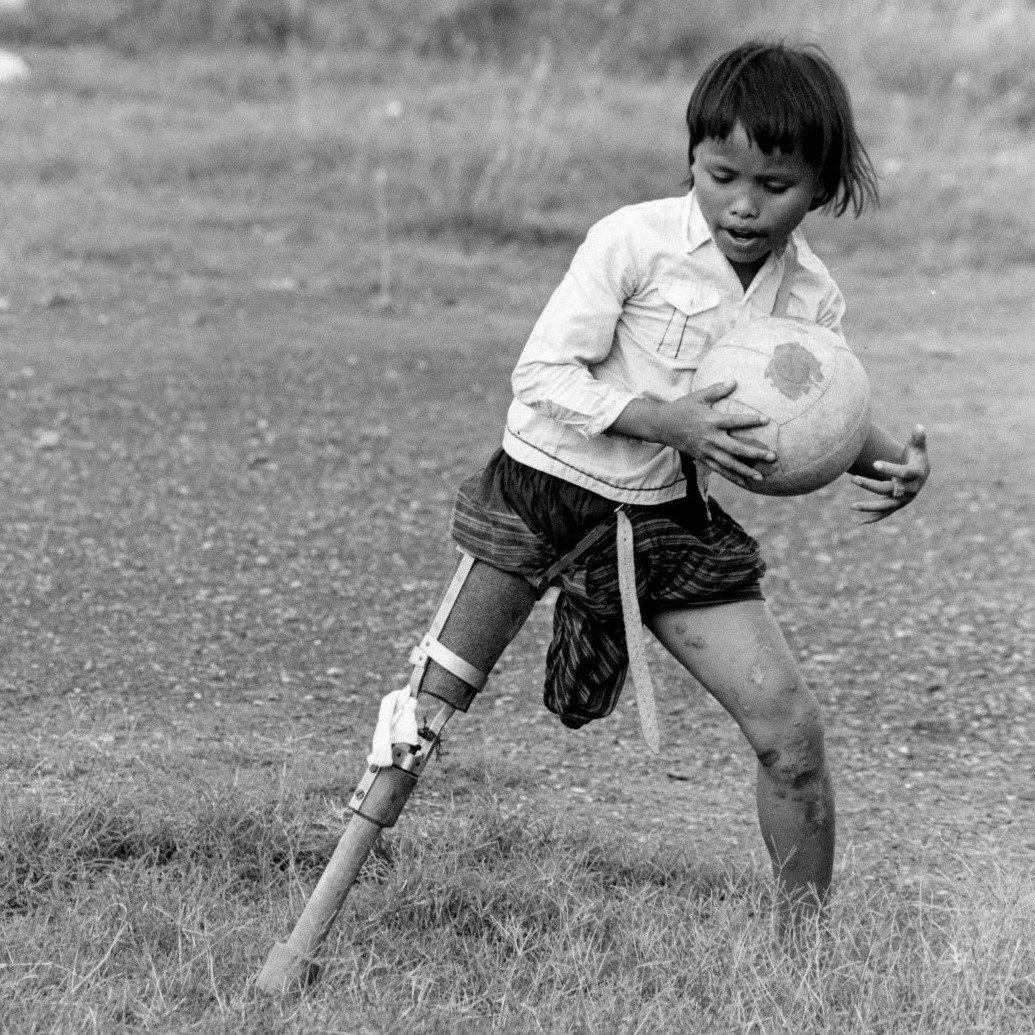



Handicap International was founded in Thailand in 1982 by two French doctors as a response to landmine injuries suffered by Cambodian people living in refugee camps. The first orthopaedic centers were set up in refugee camps in Thailand, Cambodia, Burma and Laos. Simple, locally available equipment was used, enabling Handicap International to provide immediate, effective and practical aid and to train competent local teams to carry on the work.
In 1986, Handicap International Belgium was set up, and the organization began to extend its work to other countries.
1987 – 1991
Fighting against social and economic exclusion
Handicap International moved towards a more holistic approach to disability issues. As well as continuing with rehabilitation, the organization broadened its scope of work by setting up projects to prevent disability, and to facilitate access to education and economic activities at community level.
It also began to address mental health issues, as a result of experiences with Romanian orphanages and the war in the Balkans.
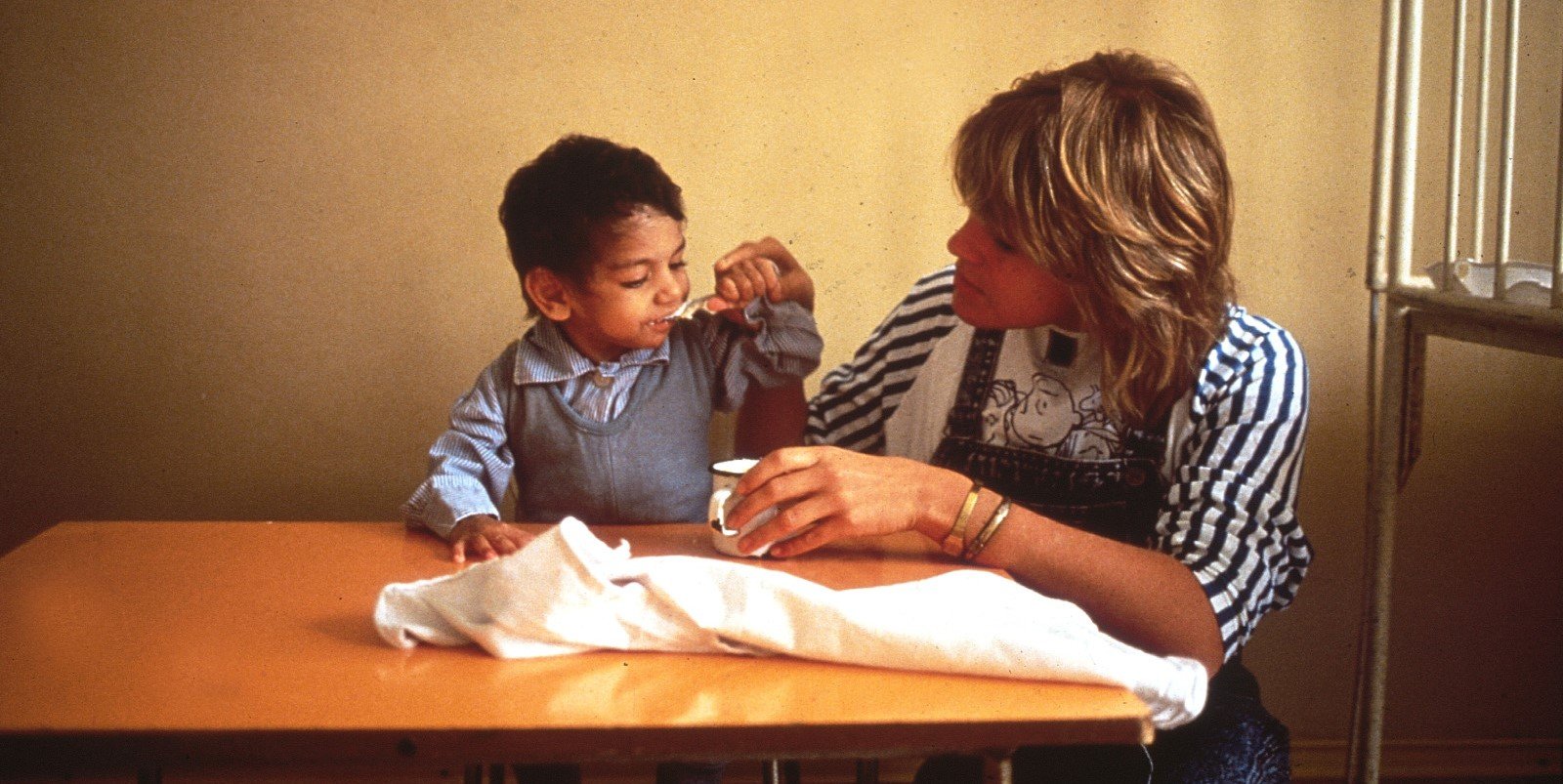



© Bettina Servan / HI
1992 – 1995
Ban this “cowardly weapon”
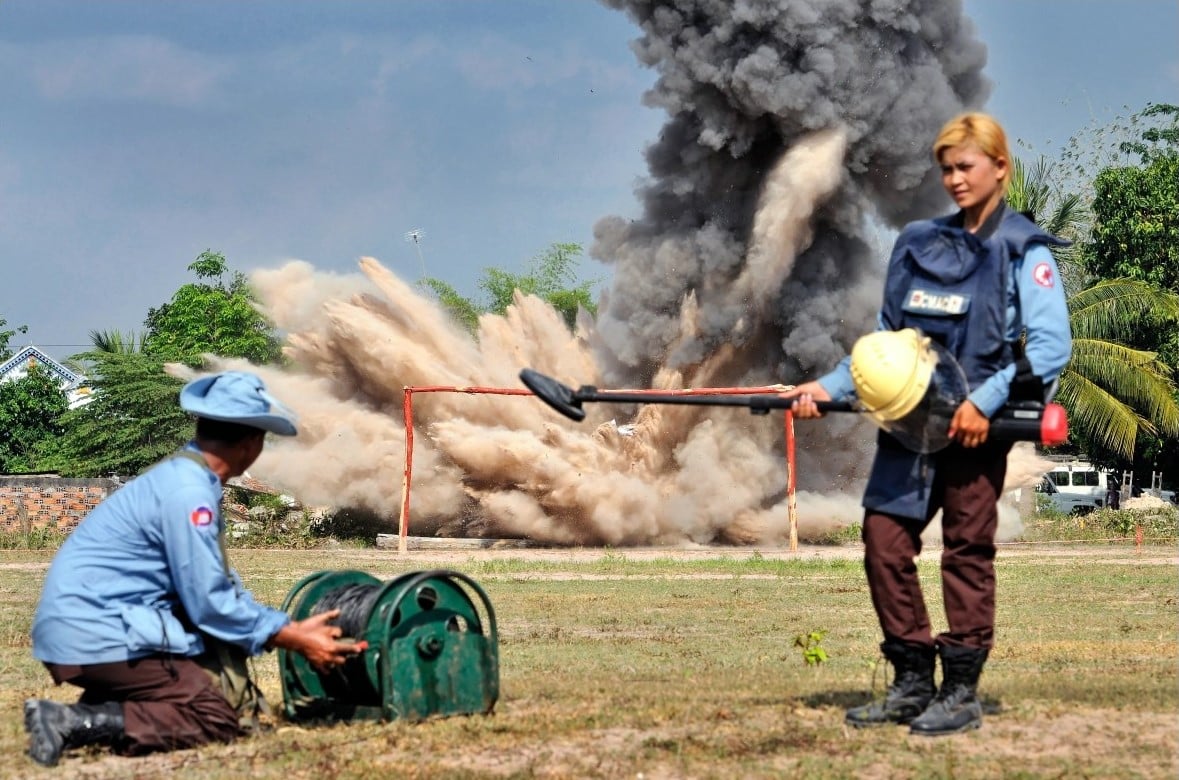



© E.Martin / Figaro Magazine / HI
Outraged by the horrific effects of landmines, Handicap International created its first mine clearance programmes in Cambodia and Kurdistan and played a key role in establishing the International Campaign to Ban Landmines (ICBL) in 1992. A petition was launched and in a very short space of time hundreds of thousands of supporters got involved.
Supporting and strengthening local capacity
During this period, more links were made with other organizations, at local and international level. Handicap International supported disabled people’s organizations campaigning for their rights to be recognized and defended. At the same time Handicap International worked towards the creation of national structures for rehabilitation professionals. Training courses leading to qualifications were set up in Cambodia, Mozambique and West Africa.
1996 – 2003
International recognition
In 1996, Handicap International received the Nansen Refugee Award for its work with refugees and victims of landmines, the most prestigious prize that can be awarded by UNHCR (the UN Refugee Agency).
In December 1997, the Ottawa Mine Ban Treaty was signed. One week later, Handicap International and its ICBL partners were collectively awarded the Nobel Peace Prize in recognition of five years of hard campaigning.
A period of expansion
During this period, Handicap International strengthened its network, building on its international experience. More national associations were set up – Switzerland in 1996, Luxembourg in 1997, Germany in 1998, the UK in 1999, and Canada in 2003. The associations share the same aims, and become involved in raising funds and managing overseas activities.
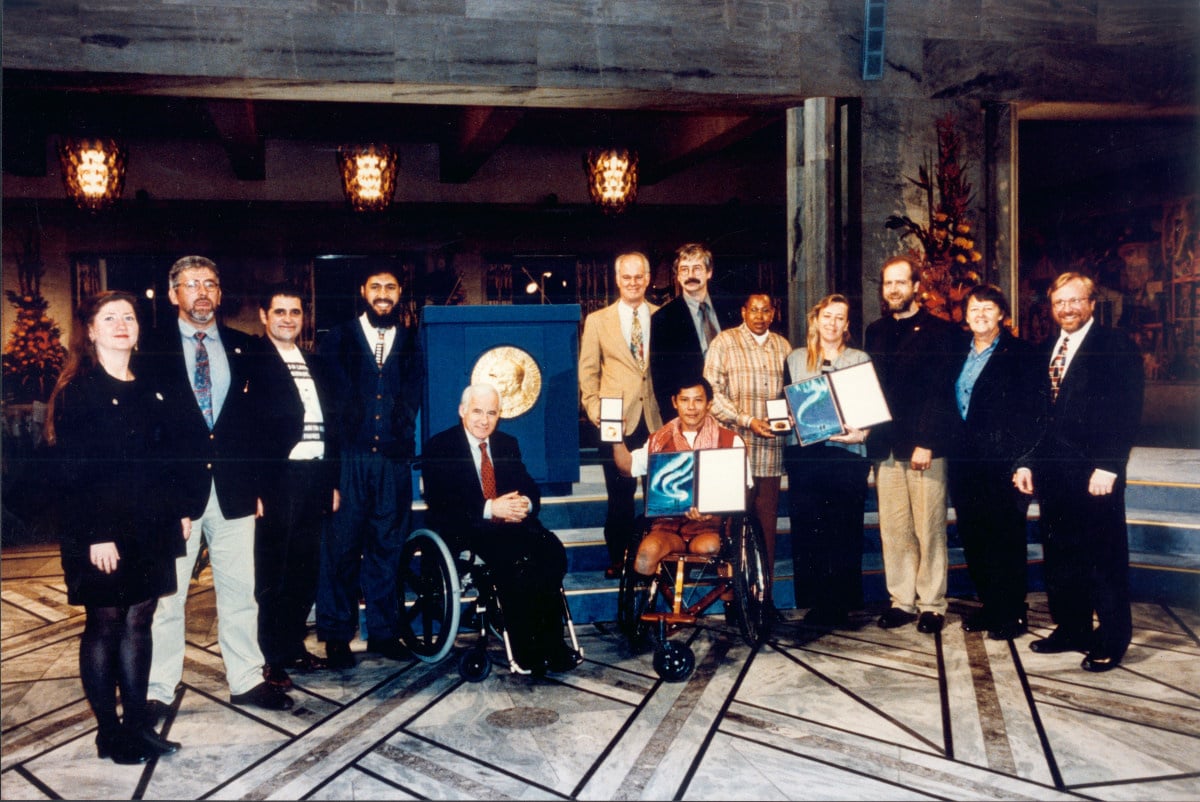



© ICBL
2003 – 2004
Campaigning for the rights of people with disabilities
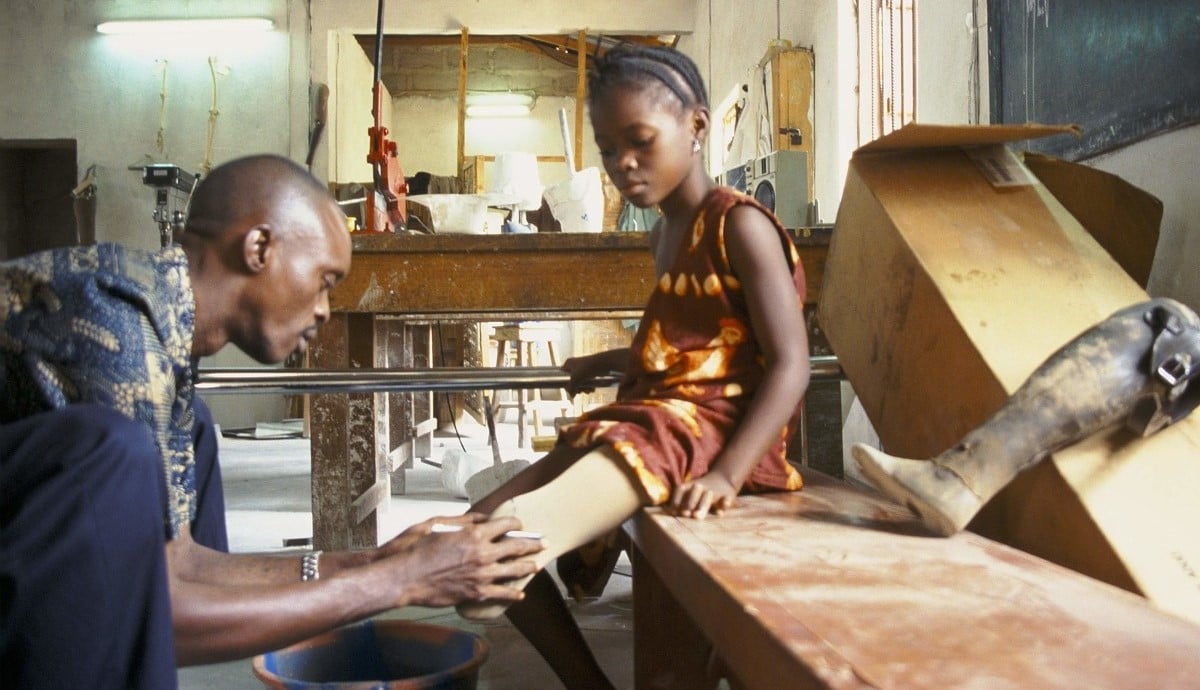



© U. Meissner / HI
Campaigning for the rights of people with disabilities
In the countries where we work, Handicap International supports the drawing up of national laws for people with disabilities to ensure that their rights are respected. As part of that commitment, the organization took part in the drafting of the UN Convention on the Rights of Persons with Disabilities.
The fight to ban cluster bombs
Since 2003, Handicap International has been involved in the fight to ban cluster bombs and is a co-founder of the Cluster Munition Coalition (CMC). As part of this coalition, Handicap International campaigns for the complete eradication of these weapons which openly violate international humanitarian law.
2004 – 2005
Emergency and long-term operations
The large number of crisis situations and natural disasters in the first part of the decade (such as the tsunami and the earthquakes in Pakistan and Iran) led Handicap International to frequently intervene in emergency situations. The organization works to prevent disabilities from developing and to ensure that there is proper care for people with disabilities, who are often forgotten in emergency relief efforts.
Handicap International sees emergency interventions as the first stage in an inclusive reconstruction process which takes into account the needs of people with disabilities.
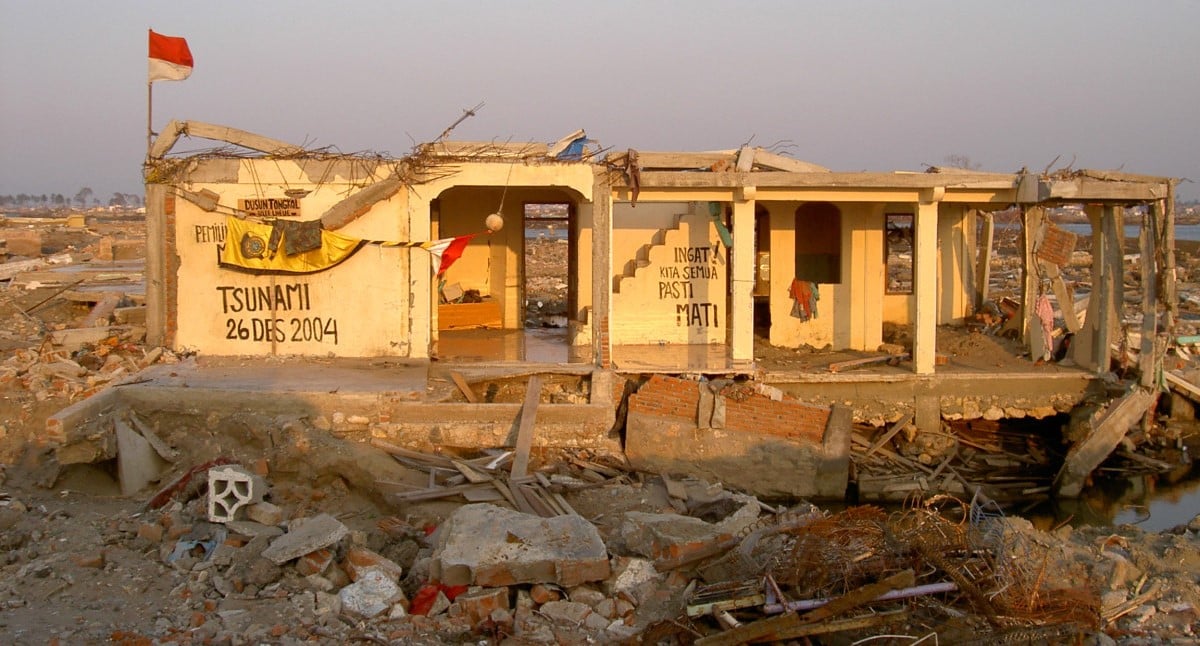



© J. Lavieille / HI
2006 – 2008
The fight against disabling diseases
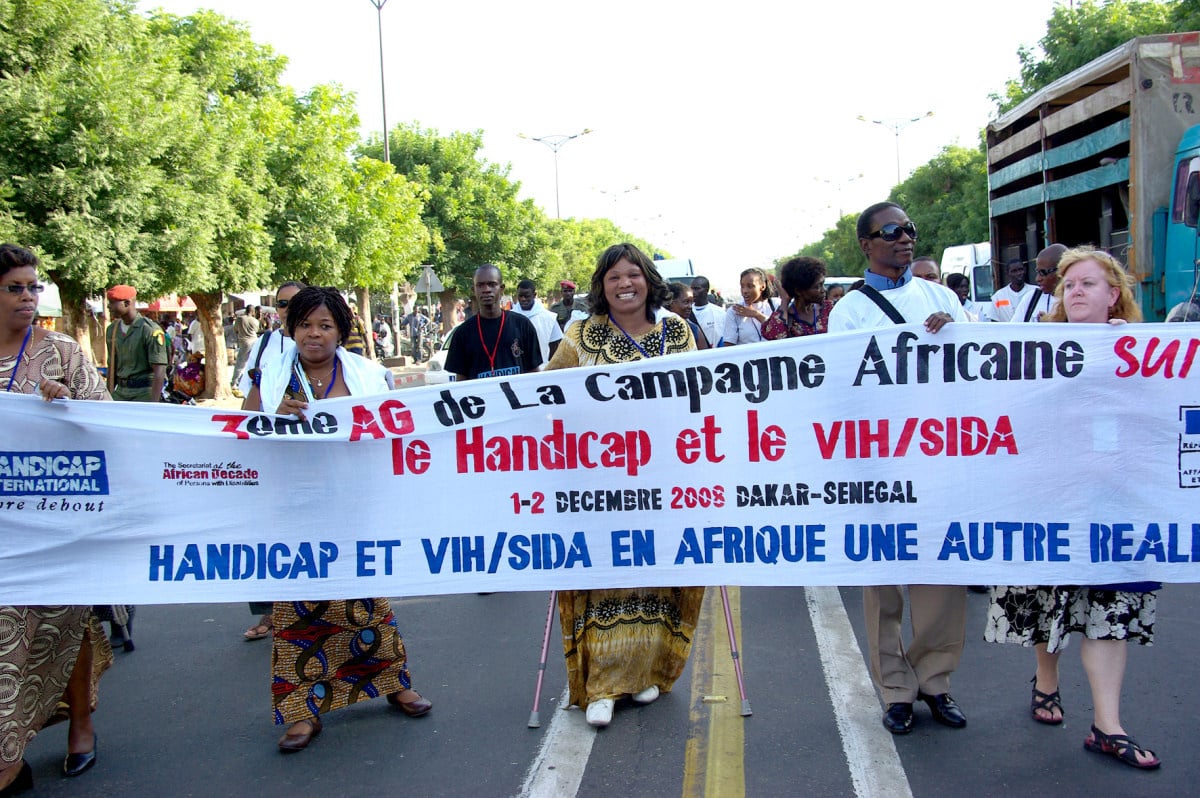



© S. Bonnet / HI
Handicap International became actively involved in international public health issues in order to reduce disabling diseases such as HIV/AIDS, Lymphatic Filariasis,and the Buruli Ulcer. Improving prevention and reducing the number of cases of these disabling diseases is proving to be a new public health challenge.
Disability rights
The UN Convention on the Rights of Persons with Disabilities (UNCRPD) was adopted in December 2006 at the United Nations Headquarters in New York, and was opened for signature in March 2007. It reaffirms that all persons with all types of disabilities must enjoy all human rights and fundamental freedoms and sets out a code of implementation for securing those rights. The convention entered into force on 3rd May 2008.
2009 onwards
A federal structure
The decision was taken for Handicap International to move towards a federal structure, which came into being in the course of 2010. Handicap International continues to work to improve the lives of people with disabilities worldwide.
Cluster munitions banned
In December 2008, 94 governments signed the convention to ban cluster munitions and since then, more countries have signed and ratified. The convention entered into force in August 2010, meaning that areas contaminated by cluster munitions will be cleared, and survivors will receive assistance to rebuild their lives.
Haiti earthquake response
In January 2010, people in Haiti lost everything during a catastrophic earthquake. At least 230,000 are believed dead and 300,000 people have been injured. Handicap International has been working in Haiti since 2008 and was able to respond less than 24 hours after the earthquake. We now have a large team on the ground, providing health care and rehabilitation to the injured, and producing emergency orthopaedic devices for amputees. Handicap International is also involved in distributing emergency aid and setting up temporary shelters for the victims of the disaster.
Recipient of the Hilton Prize
In 2011, Handicap International was awarded the Hilton Humanitarian Prize, in recognition of almost 30 years of humanitarian action. The largest humanitarian award in the world at $1.5 million, the prize is presented annually by the Conrad N. Hilton Foundation to a humanitarian organisation doing extraordinary work to alleviate human suffering.
Between July 2012 and July 2013, Handicap International celebrated its 30th anniversary.
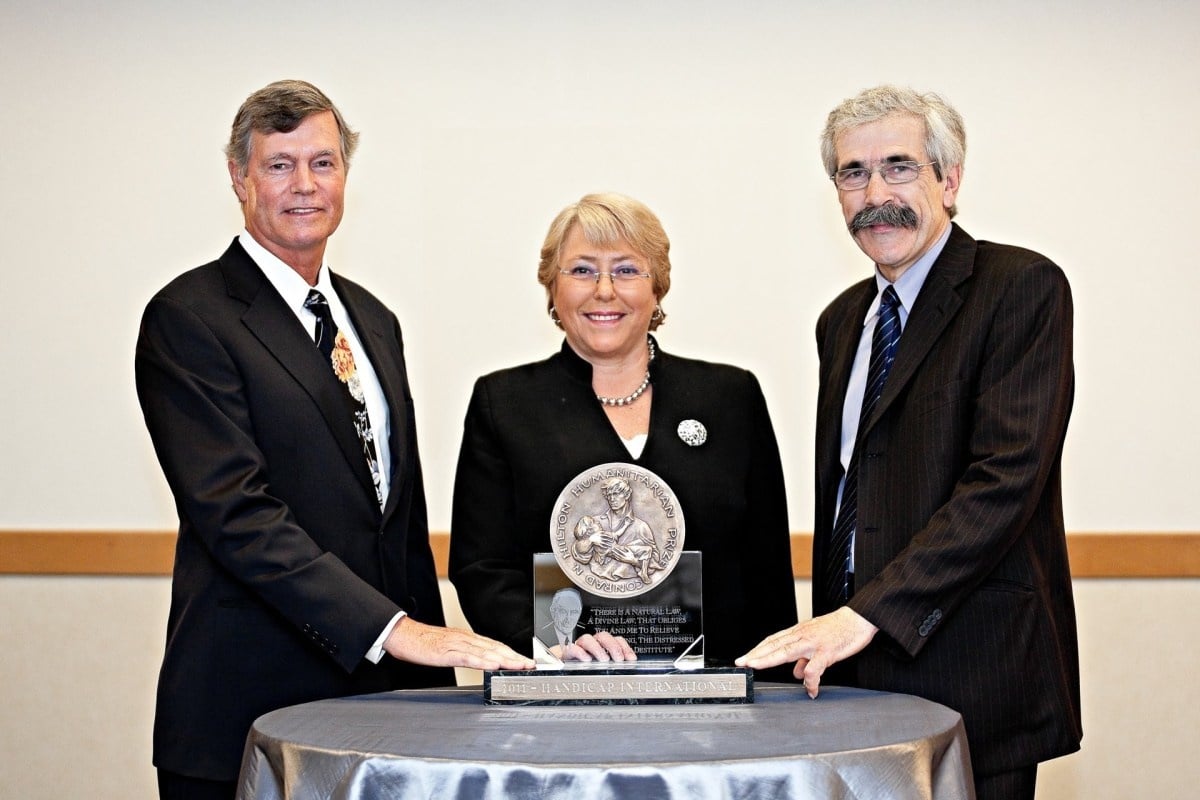



© Conrad N. Hilton Foundation
2018
A new name with meaning
In 2018, Humanity & Inclusion became the new name of Handicap International.
Humanity & Inclusion Canada | 50, Saint-Catherine West - Suite 500b | H2X 3V4 Montreal
[email protected]
Charity number: 88914 7401 RR0001
For any questions regarding your donation, please contact us at the following email address: [email protected]